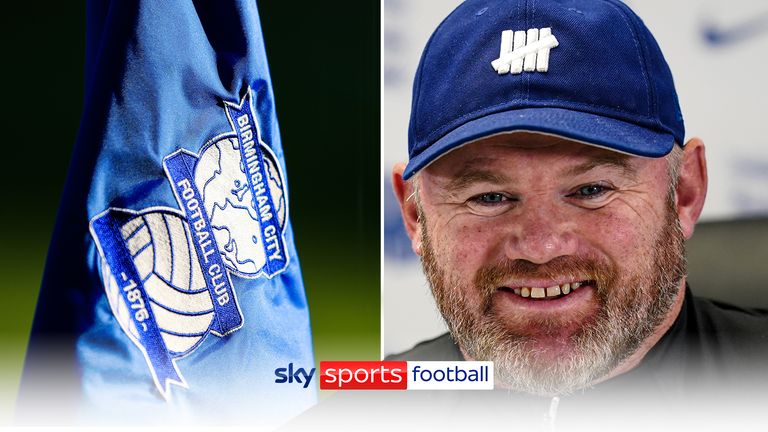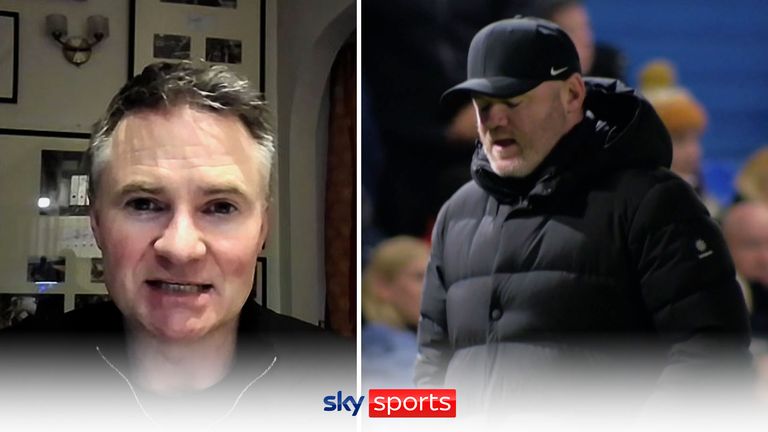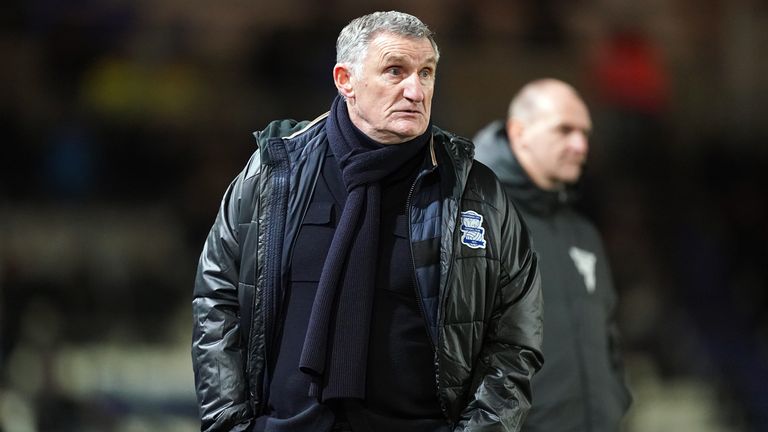When new investors Tom Wagner and seven-time Super Bowl champion Tom Brady drew acclaim on their first visit to Birmingham City last summer, everything finally seemed rosy in B9 after years of turmoil.
A last-minute penalty had just beaten promotion contenders Leeds in the second half of a five-game unbeaten run earlier in the season. After ten games, Birmingham were in fifth place after a comfortable 3-1 win over local rivals West Brom in front of their biggest home crowd since before the pandemic.
Derelict areas of St Andrew’s, left in such disrepair that entire stands were closed last season, were open again – and shining. The broken old showers in the locker room at home have finally been repaired. The players’ tunnel was decorated with inspirational quotes and pictures. This house finally felt like home again.
“We are not here for a short time, we are here for the long term,” said Wagner, the new club chairman, after the first home win of the season. “All of our decisions are focused on what is best for the club in the long term.”
Football is never easy. Good times rarely last too long and words are simple. But even with the unwanted dose of déjà vu, that quote would come back to haunt Wagner, Brady, and Birmingham faster than anyone could have imagined.
Despite a win on the final day of the match over play-off participants Norwich, they have now been relegated to the third division for the first time in almost 30 years.
To paraphrase the poetry of Birmingham fan Mike Skinner: How did this happen?
This game against West Brom was to be John Eustace’s last as manager. It would be unfair to place the blame for what followed solely on the decision to replace him with Wayne Rooney, whose short managerial career had shown promising but also worrying moments. But it laid the foundation for ruin.
It appeared the new superstar owners had similar plans for their head coach role, bringing with them one of the game’s most recognizable faces this century. But the suitability for the main role of coaching Birmingham’s players was perhaps given less attention than it could have been. And soon the results showed it.
“The new bosses demanded patience and trust,” remembers Sky sports news Chief reporter Rob Dorsett. “Their reasoning was clear: to compete with the big clubs, Birmingham needed to expand its commercial base and increase revenue streams.”
“Rooney, as a global sports icon – another one alongside Brady – could help achieve this. And Garry Cook, the new chief executive, who had previously worked at Manchester City, along with Craig Gardner, the director of football, believed Rooney could too. Help take the Blues to new levels on the pitch.
Rooney certainly did, although not in the way the new owners intended. A win from its first nine games, coupled with increasing public protests questioning the wishes of its players, weakened the positive mood around St Andrew’s. As they were soon replaced by boos, he called for patience – but even he couldn’t deny that he understood the fans’ frustration.
“My job is to improve them as players. That’s why we hope there will be changes in the next six months because you want to sign players and the players will leave,” he said after one of the worst of those results, a lackluster 0-0 draw against Rotherham – which itself has been all season over had only won twice.
Six Months was optimistic given the stony decline of his reign in Birmingham. Falling from fifth to 20th in 15 games was so glaring to Brady and Wagner that something had to be done.
There were obvious parallels between Rooney’s appointment and that of Gianfranco Zola under Birmingham’s old owners, Trillion Trophy Asia. Like Rooney, he had replaced a popular manager – then Gary Rowett – who left them struggling for promotion.
Like Rooney, Zola had been an absolute disaster. Rooney’s three-and-a-half year contract, said to be worth around £5 million, was less than three months old.
“There was a significant relief for Rooney as he endured a baptism of fire and a series of injury problems that hurt his team,” added Dorsett. “But Birmingham relied on the safe hands of the extremely experienced Tony Mowbray. He was certainly able to stabilize the ship.”
Mowbray had worked hard in his recent roles, leaving jobs at Blackburn and most recently Sunderland, both on the verge of the play-offs – so no one could say he was unaware of Birmingham’s recent plight.
He had been deployed as a firefighter in Coventry and then Blackburn and had made an immediate impact in both roles. In fact, 10 points from six games followed, including particularly fine consecutive wins against his last two clubs, which catapulted them back to 15th with a six-point lead over the bottom three.
But then suddenly another moment arose that made Birmingham’s downfall more complicated than any specific incident.
Two days after sitting in the dugout to plan the win over Sunderland, Mowbray required medical treatment so serious that it would ultimately sideline him until the end of the season, which has still not been publicly announced.
“After a difficult period in which the club tried to wait for the right time in the hope that Mowbray would be well again, the decline on the pitch continued in the absence of a permanent manager,” says Dorsett after one disastrous run of just one point six games under Mowbray’s assistant Mark Venus.
“The hierarchy had no choice but to make another leadership change, with Rowett returning to the club to take charge of the final eight games in an attempt to salvage the season and avoid relegation to League One.”
The irony of Rowett’s return and the way he took over the same sinking ship that had come after his first term at the helm ended was not lost on him.
But Birmingham needed something quickly and Rowett has been out of work since being released by Millwall in October.
Despite a valiant effort, in the end he was unable to keep them afloat in the championship.
“Even with relegation, there’s a strange feeling at St Andrew’s,” adds Dorsett. “If you ask most fans if they would change where they are now compared to a year ago, most would still throw up their hands.”
“Last month Knightshead unveiled ambitious plans for a brand new 60,000-seat stadium and new commercial ventures, despite the team being in the midst of a relegation battle. These development plans would continue, they said, even if the team were to drop out of the first division.
“It is this promise of a much better future that makes the short-term bitterness of possible relegation sweet enough for fans to digest.”
Of course, only a Birmingham fan particularly keen on trips to Shrewsbury and Exeter would be looking forward to relegation to League One, but after years of misery on and off the pitch, things are now looking bright for at least one of them.
It appears that Wagner and Brady are keeping their word, although some of their early comments may be premature. So even after their championship spell ends, the future still seems bright for the club.



